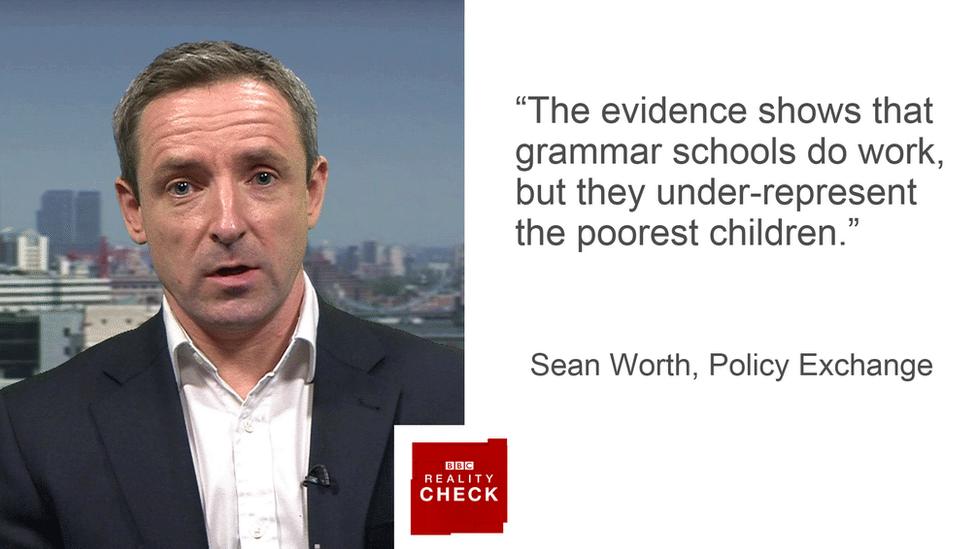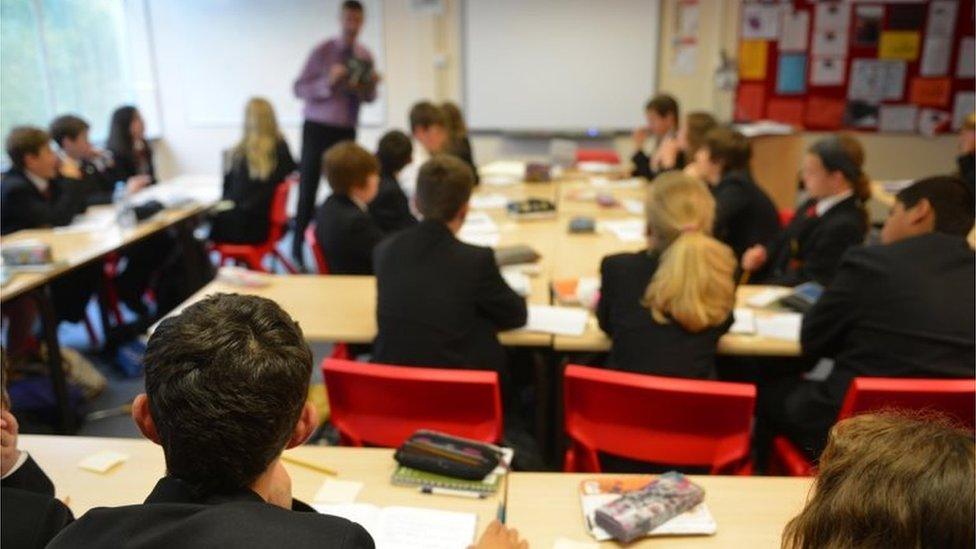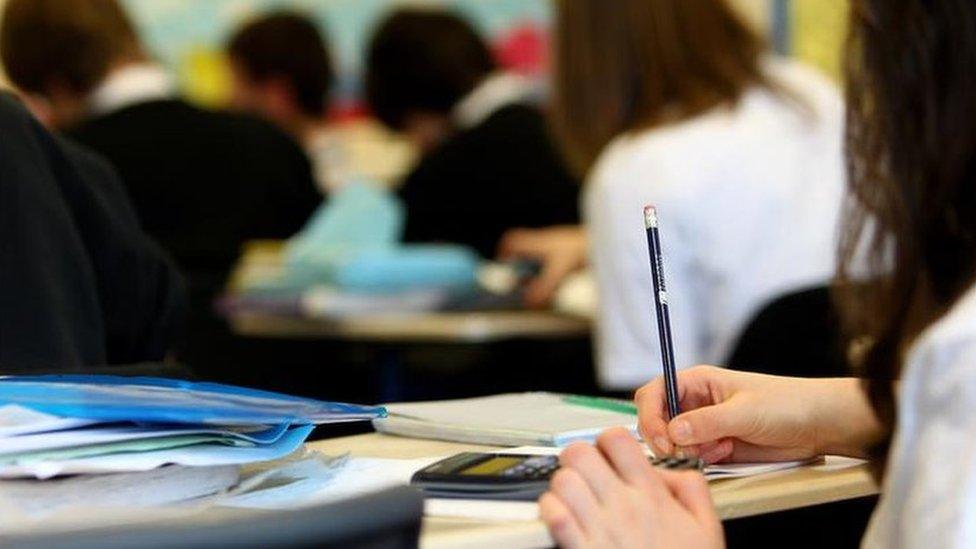Reality Check: Do grammar schools work?
- Published

The claim: Grammar schools work, but they under-represent the poorest children.
Reality Check verdict: Pupils at grammar schools perform well. Children overall in areas with grammar schools perform less well than in non-selective areas, except for the richest children. Poorer children are less likely than wealthier children to get into grammar schools.
Sean Worth from the think-tank Policy Exchange, who was formerly a special adviser to David Cameron, has told BBC News: "The evidence shows that grammar schools do work, but they under-represent the poorest children."
He was speaking on the day that Education Secretary Justine Greening confirmed "we do believe selection can play a role" in the schools system.
Much of this question depends on what you mean by grammar schools working, but you could look at whether they work for the pupils attending them and for the education system as a whole.
An excellent place to start looking at the evidence on grammar schools is with the work of Newsnight's Chris Cook.
He found in this piece of research that children from prosperous families in Kent (the biggest area for selective schools in England) are more likely to get into grammar schools and also that in selective areas, poorer children overall get relatively worse GCSE results than they do in comprehensive areas.
This report from the House of Commons Library, external has a good round-up of the research into grammar schools.
In England, the report says that in 2015, 96.7% of pupils at selective schools achieved at least five GCSEs at grades A* to C including English and maths, compared with 58.1% in state-funded schools overall.
What we cannot find out is how the pupils selected at age 11 would have fared if they had not gone to a selective school.
Another important piece of research is this work from the Institute for Fiscal Studies,, external which found in 2013 that grammar schools were disproportionately unlikely to admit bright students who were eligible for free school meals or from poorer neighbourhoods and disproportionately likely to admit children from private primary schools.
And this piece from Policy Exchange, external cites work by Chris Cook, which finds that pupils overall in counties with selective schools perform worse at GCSE than their counterparts in non-selective schools, except for the very richest pupils.
It is worth bearing in mind that the government has not yet announced how it plans to use selection in its education policy for schools in England, but the evidence so far is that grammar schools in England do not boost overall attainment in areas in which they are most common.



- Published8 September 2016
- Published8 September 2016

- Published8 September 2016

- Published14 July 2016
- Published22 February 2016
